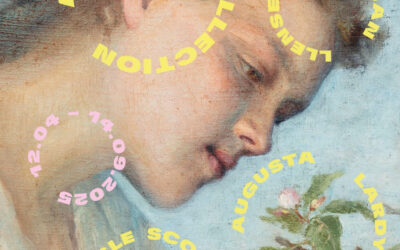Kinds of Kindness is a psychological dark comedy co-written with Efthimis Filippou and directed by Yórgos Lánthimos – Presented in the “Official Competition” at the 2024 Cannes Film Festival, where Jesse Plemons wins the Best Actor award.
It’s no surprise that the first sound we hear is Sweet Dreams by Eurythmics, as the film delves into manipulation, the need to manipulate, and, above all, the desire to be manipulated. This is a universe à la Lánthimos, shot by Robbie Ryan in widescreen format on film, unfolding through a well-structured triptych set up by the ironic director in real life decors with nature light . From the beginning, the title’s repetition in graphic form—yellow, red, and blue—sets the tone. These are not the primary colours of cinematography but of physical reality, in which the actors oscillate between being the manipulators and the manipulated.
“We started with a single story, but as we worked on it, we thought that placing it within a structurally different film would be much more interesting. After identifying two other narratives, we made sure to maintain a thematic thread to give them a sense of unity.”
Yórgos Lánthimos

film director Yórgos Lánthimos with Jesse Plemons, winner of best actor award, and Emma Stone
The title bears an absurd and ironic feel, as all three stories depict violent psychological narratives. By interchanging the actors, Lánthimos allows viewers to recreate their own version of the movie through a mental process of collaborative reconstruction. The film is presented as a closed triptych, with the final scene linking back to the first, inviting us into a self-contained universe. This universe mirrors the ego-syntonic nature of the characters, portraying a downward spiral that inevitably ends in tragedy.
The female characters hold a powerful place in his script. They are shadow manipulators, accompanied by minimalist piano chords, preparing us to enter a hyper-controlled universe. Every aspect and gesture is meticulously prepared or imposed, creating an autocratic world twisted and corrupted by violence. This ordinary epic drama unfolds in a setting that feels both familiar and alien, everywhere around us. Through the ordinary nature of violence, the story allows us to foresee the next move and, like in a triangle, understand that everything is interchangeable.
“As we were going to film three stories in a contemporary world, we sought simplicity. It was about finding the most basic way to approach a scene in order to focus on its true essence.”
Yórgos Lánthimos


in order from the left: Hong Chau , Willem Dafoe, Emma Stone, Yórgos Lánthimos, Palme d’Or Best Actor winner Jesse Plemons, Margareth Qualley, Mamoudou Athie, Hunter Schafer
Lánthimos is a revealer of vice, a creator of human fables that highlight everything we would rather not know about our nature. His cinematographic work is closer to contemporary art: he is not here to flatter us or make us dream. Ornamentation and poeticism are far from his camera, replaced by cynicism, hitting us with raw, unrelenting energy.
Each of Lánthimos‘s films is a bold exploration of the darkest aspects of humanity. He dissects our weaknesses, desires, and absurd behaviours with surgical precision. Through this three narratives, he exposes the hypocrisies and contradictions that define us, often using the absurd and the humour to amplify the impact of his observations.
“It is interesting to observe how much man thinks he has control over things or is free to decide them. How, as soon as he has this freedom, all this becomes difficult for him to manage. It is somewhat a microcosm of real life where people who seem to have no power at the start end up ultimately gaining the upper hand over others, who are yet much more powerful.”
Yórgos Lánthimos
Lánthimos does not seek to offer solutions or happy endings. Instead, he forces us to confront the unpleasant realities of our existence. After the success of Poor Things – 69 International awards – we were surprised to see yet another powerful creation from him, especially so soon.
This movie reminds us of the heaviness and dark morality of The Killing of a Sacred Deer, his 2017 Cannes success. Everything is is neat, cold, and gradually seeps into our hearts like a growing unease. It depicts a reality we have encountered, one that is so probable and so harsh that it feels worse than the most violent horror. The restrained and minimalist performances add a terrifyingly unsettling atmosphere. To what lengths would you go to please others? Emma Stone is phenomenal, which is no surprise given that she is the director’s muse and favorite actress.
Jesse Plemons reveals his theatrical depth; he is compelling and draws us into his character’s psyche, making us question our own abilities and free will.
“He is one of the greatest actors today. He has an incredible sense of humour and knows how to strike the right tone very well. He is a hard worker, and his ability to subtly transition from one character to another is extraordinary. He is always ready to try something different,” tells us Yórgos Lánthimos
Willem Dafoe brilliantly portrays an abject manipulator, where his narcissistic egocentrism reaches unprecedented dimensions, reminiscent of Sartre. He then transforms into a loving, naive, and absent father, only to take on the role of a guru in the third act, leading a dangerous sect with dubious morals.
“(…) They’d been working on this for years together (Filippou and Lánthimos), so they felt like it was ready to go. They were waiting for the FX stuff and other things to complete the post-production of Poor Things.
He called me up, and I was very happy to hear from him because I had a wonderful time with Poor Things. I enjoyed working with him so much; I just feel very comfortable with him. He gives me interesting things to do. His films are the kind that I love, particularly this one where the audience can engage deeply and make the movie their own because they bring their own experiences to it. He doesn’t tend to point to things.
There’s a complexity and a richness in the material, and different people are going to see different things, and I like that. I think that point in cinema where you say, ‘What is this? What do I think? What’s going on?’ is where curiosity starts. And when you’re curious, you go towards something, you learn something, and I think that energizes you and kind of gives you a better life.
I’ve always been director-driven. The director is probably one of the most important, if not the most important, elements when deciding what to do because I feel most comfortable when I can really give myself to a director. I feel free then, and I feel most comfortable doing my best work and having the most fun. So, once you have a good time, not only do you want to repeat that because you have a shorthand and there’s a trust there, but also there’s something beautiful about being in the fabric of a director’s work. (…)
Generally, it’s unheard of for two weeks before the cast arrives to do rehearsals, just to fool around and get to know each other. And that’s what he does. And that time is crucial because he really makes it a company.”
We had the pleasure of meeting Willem Dafoe at Armani, in Cannes, for a chat.
To conclude, I am delighted to invite you to experience a small Chanel surprise featuring Margareth Qualley and Willem Dafoe.
By Alexandra I. MAS












